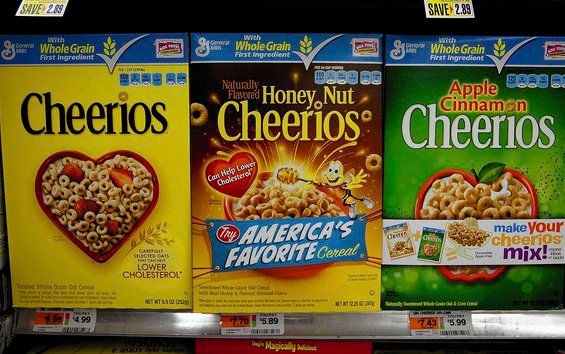Why GMO-Free Cheerios are Nice, But Far From a Major Victory


When General Mills announced earlier this month that their original Cheerios would now be GMO-free, the media gobbled it up like it was some major victory against genetically-modified giants. But unfortunately, it isn’t. Though the move by the huge cereal company is a nice one, it’s little more than a conciliatory offering, and truly it’s likely the only one we’ll see from General Mills.
You see, the company is one of many who are dedicated to fighting GM-labeling laws because they know most of their products are loaded with GMOs. Cheerios simply represented the easiest and least-painful way to give conscientious shoppers a small victory they could capitalize on for years to come.
Here is the announcement on the General Mills Cheerios website:
“We don’t use genetically modified ingredients in original Cheerios. Our principal ingredient has always been whole grain oats – and there are no GMO oats. We use a small amount of corn starch in cooking, and just one gram of sugar per serving for taste. But our corn starch comes from non-GMO corn, and we use only non-GMO pure cane sugar.”
Basically, it was an easy move for the company to take genetically-modified ingredients out of Cheerios, because there were only 2 to begin with—corn starch and sugar beets. But to remove the genetically-modified ingredients from the rest of their cereal? Even General Mills says there’s no chance:
Read: 10 Companies Fighting GMO Labeling
“Cheerios’ principal ingredient has always been whole grain oats, and there are no GMO oats. We use just a small amount of corn starch in cooking, and just one gram of sugar per serving for taste. So we were able to change how we source and handle ingredients to ensure that the corn starch for original Cheerios comes only from non-GMO corn, and our sugar is only non-GMO pure cane sugar. For our other cereals, the widespread use of GM seed in crops such as corn, soy, or beet sugar would make reliably moving to non-GM ingredients difficult, if not impossible.”
The company admits their other Cheerios varieties and thusly their other cereals are so loaded with genetically modified ingredients, it would be difficult nay impossible to remove them all.
But wait, aren’t General Mills cereals in Europe made without GMOs? Sure enough. But General Mills has an answer for that too:
“Almost half of the cropland in the U.S. is used to grow genetically modified crops, and 70 to 80 percent of the foods in the average grocery store likely contain GMOs. In Europe, there is a national standard for labeling non-GM ingredients, and the grain supply is very different.”
In other words, everyone’s doing it and what the people of the US want is far less important than what the system says they need.
So while it’s nice that original Cheerios will no longer have genetically-modified ingredients, it’s hardly a reason to celebrate. General Mills is not interested in a GM-free breakfast. On the contrary, in 2012, the company spent $1.1 million to fight the GMO labeling bill Proposition 37 in California. Not only do they plan on keeping genetically-modified ingredients in their products, they’d rather not be required to reveal their presence to you.
